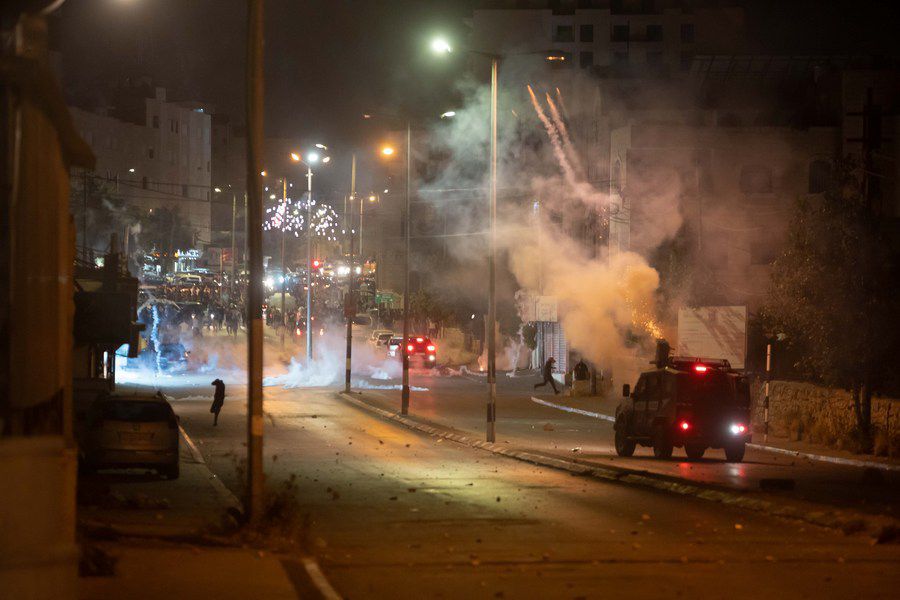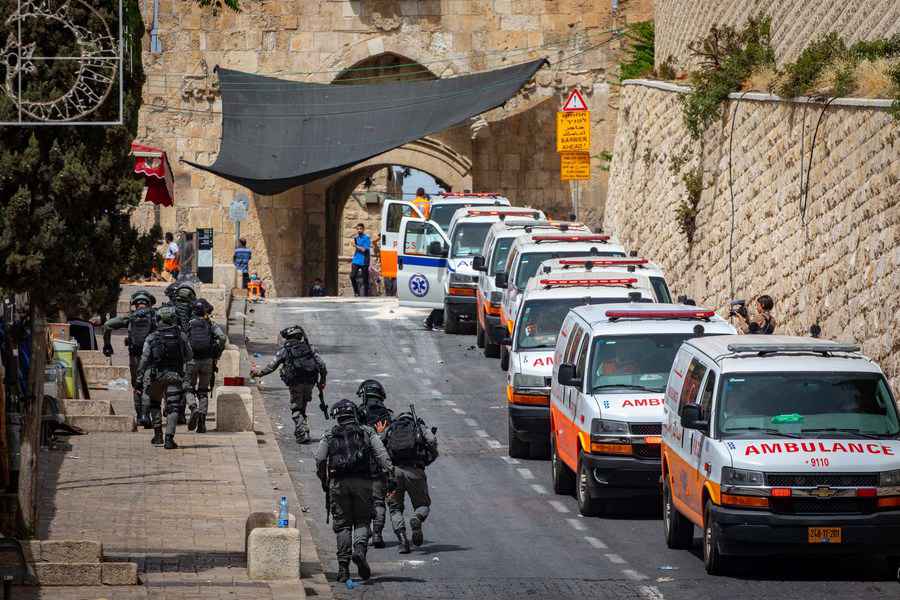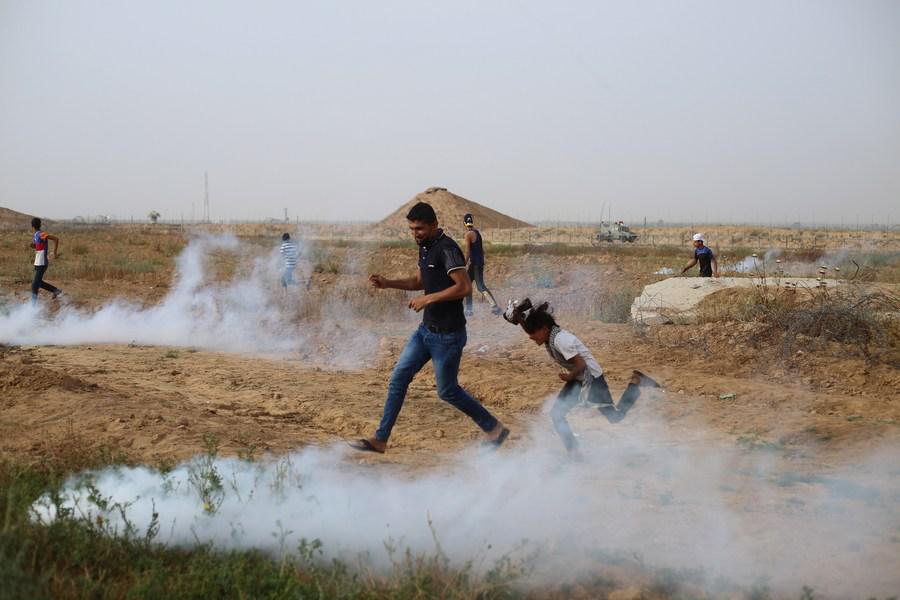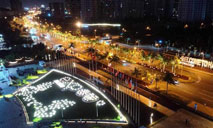Commentary: Self-restraint, dialogue needed to de-escalate Israeli-Palestinian tensions

An Israeli military vehicle fires tear gas canisters at Palestinian protesters during an anti-Israel protest against the violence in Jerusalem, in the West Bank city of Bethlehem, on May 10, 2021. (Photo by Luay Sababa/Xinhua)
To de-escalate tensions, both Israel and the Palestinians should remain somber to the fact that violence will only fuel more violence and calm is needed to avoid more civilian casualties.
Both sides should also refrain from provocative actions and rhetoric, and have the prudence not to worsen the situation with threats, strikes and revenge.
JERUSALEM, May 11 (Xinhua) -- Israeli-Palestinian tensions have been further inflamed as both Israel and Hamas carried out military actions on Monday, making it "one of the bloodiest days" between the two sides as some media have described.
During Monday's clashes at the Al-Aqsa Mosque compound, holy to both Muslims and Jews, Israeli forces fired stun grenades, injuring at least 305 Palestinians, according to the Palestinian Red Crescent.
On the same day, over 150 rockets were fired from the Gaza Strip towards Israel. In response, Israel launched airstrikes in the Gaza Strip, killing at least 20 people, including nine children.
The escalation came after days of tensions over Israeli restrictions on Palestinian Muslims during the Muslim holy month of Ramadan and a plan to evict some Palestinian families from neighborhoods in East Jerusalem.

Israeli police patrol around the Al-Aqsa Mosque compound in Jerusalem on May 10, 2021. (JINI via Xinhua)
The latest military actions have raised concerns about growing tensions in the Middle East, which has long been suffering from chaos, violence and conflicts.
The international community has called on Israel to respect the freedom of peaceful demonstrations and cease its eviction plan.
Compromise has been made as the Israeli Justice Ministry decided to postpone a court hearing over the plan in Sheikh Jarrah, which indicated a possible further step for Israel to cease the eviction plan.
To de-escalate tensions, both Israel and the Palestinians should remain somber to the fact that violence will only fuel more violence and calm is needed to avoid more civilian casualties.
Both sides should also refrain from provocative actions and rhetoric, and have the prudence not to worsen the situation with threats, strikes and revenge.

Palestinians run to take cover from tear gas canisters fired by Israeli troops during a protest against the violence in Jerusalem, on the Gaza-Israel border east of southern Gaza Strip city of Khan Younis, on May 9, 2021. (Photo by Khaled Omar/Xinhua)
Threats have already come with conflicts. Israeli Prime Minister Benjamin Netanyahu vowed on Monday "whoever attacks us will pay a heavy price" and warned that the fighting could "continue for some time" after Israel's retaliatory strikes.
The new flare-up of tensions has underscored the importance for both sides to exercise self-restraint and for relevant parties to make concerted efforts to resume dialogue urgently to calm the situation and deal with the impasse.
The status of Jerusalem lies at the core of the dispute between Israelis and Palestinians.
History has shown that the issue can only be solved politically through dialogue, and the current military actions will only repeat previous bloody conflicts without achieving any desired results.
Under the Oslo peace accords signed between Israel and Palestinians in 1993, Jerusalem's status should be decided in the Israeli-Palestinian final-status talks. The Palestinians insist that they will establish an independent Palestinian state with East Jerusalem as its capital in the final settlement.

Palestinian protesters take part in an anti-Israel protest in the West Bank city of Hebron, on May 10, 2021. (Photo by Mamoun Wazwaz/Xinhua)
All the facts that are recognized and respected by the international community should not be ignored by Israel.
The Israeli-Palestinian peace process has been halted since 2014 when negotiations collapsed. No one expects the two sides to settle a series of thorny issues and reach a peace agreement overnight, but returning to the negotiation table instead of battlefields is the only way to realize peace between Israelis and Palestinians and in the whole Middle East region.
People in this war-torn land are in dire need of peace instead of hatred and conflicts. For the peace talks to jump out of the vicious circle of hope-to-despair, all parties involved need to show sincerity to break the deadlock and move the peace process forward.
Photos
Related Stories
- U.S. calls for de-escalation in Israeli-Palestinian clashes
- Tension between Israel, Gaza militants threatens to further escalate as death toll mounts
- Israeli-Palestinian clashes spiral, int'l community urges de-escalation
- Tension between Israelis and Palestinians flares up
- 7 rockets fired from Gaza at Jerusalem area: Israeli military
Copyright © 2021 People's Daily Online. All Rights Reserved.










